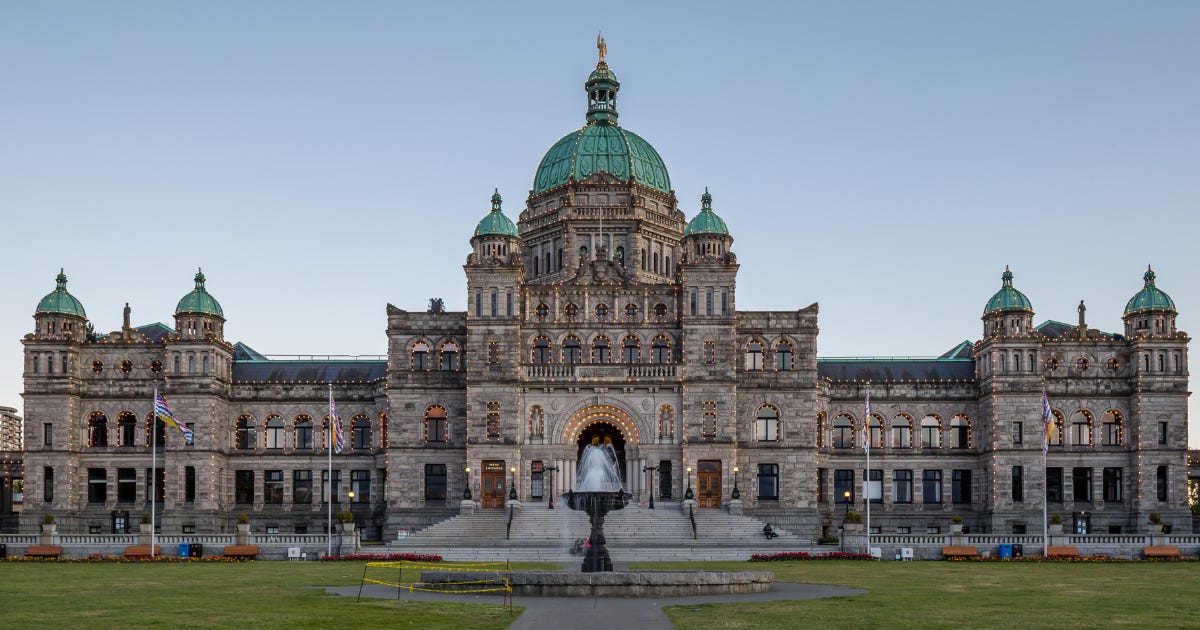B.C. NDP’s UNDRIP commitment faces challenge from U.S. tribe
Another challenge to the B.C. NDP government’s commitment to the United Nations Declaration on the Rights of Indigenous Peoples and this time it’s from a U.S. First Nations tribe.
Another challenge to the B.C. NDP government’s commitment to the United Nations Declaration on the Rights of Indigenous Peoples and this time it’s from a U.S. First Nations tribe.
A Native American tribe in Washington State is suing the B.C. government for prohibiting its participation in consultations for multiple infrastructure projects, according to a report.
Lummi Nation, based in western Washington, asserts that before the U.S. border was established, it had a traditional village, harvesting and cultural sites on both sides of the 49th parallel. This includes an area now occupied by the causeway leading to the B.C. Ferries terminal in Tsawwassen.
The Lummi Nation is asking the B.C. Supreme Court to quash orders-in-council that determined it was not a “participating Indigenous nation” in the environmental assessments of six B.C. infrastructure projects. It argues these orders are inconsistent with the B.C. Environmental Land Use Act.
The Nation seeks a declaration that it is a “participating Indigenous nation” and therefore entitled to the “right of consultation” in environmental assessments of projects impacting its traditional territory.
The Lummi Nation’s case relies, in part, on the 2021 Supreme Court of Canada decision, R. v. Desautel. This decision determined that Indigenous people who are not Canadian citizens and do not live in Canada can exercise protected Aboriginal rights, such as hunting or fishing, in the territory they occupied at the time of European contact.
The Lummi Nation’s case also aligns with the text and spirit of UNDRIP, which affirms Indigenous peoples’ rights to self-determination and participation in decisions affecting their traditional territories, irrespective of national borders.
The original 32-page UNDRIP is clear: Indigenous peoples have the right to self-determination, to maintain their cultures, and to participate in decisions affecting their traditional lands.
On November 28, 2019, the Legislative Assembly of British Columbia unanimously adopted the U.N. declaration, becoming the first jurisdiction in Canada to enshrine UNDRIP into law.
Since then, the Eby government has repeatedly invoked UNDRIP as a guiding legal principle in significant court cases. Notably, it abandoned a key legal defence in the B.C. Supreme Court case Cowichan Tribes v. Canada, citing the province’s commitment to the U.N.’s vision of reconciliation.
After B.C. enshrined UNDRIP into law, government directives — issued when David Eby was attorney general and as the Cowichan Tribes case began its five-year journey through the courts — required provincial lawyers to abandon the practice of “unilateral extinguishment of Aboriginal rights,” explicitly citing the province’s “obligations” under UNDRIP.
Similarly, in the Lummi Nation case, Articles 3 and 32 of UNDRIP affirm that Indigenous peoples “freely determine their political status” and have the right to be consulted on projects impacting their lands, territories, and resources — seemingly irrespective of national borders.
These provisions could challenge B.C., as the province must reconcile its domestic UNDRIP obligations with the fact that Lummi’s traditional territory extends into the United States, raising questions about the reach of the province’s duty to consult.





“What” “a” “mess”
Municipally
Provincially
Federally
Wow - what a can of worms Eby has unleashed on BC and Canada!